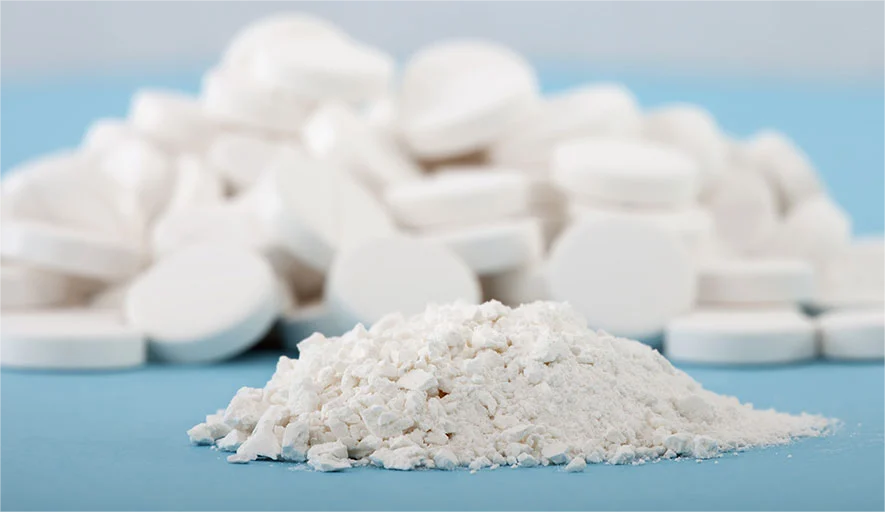
Sports Supplementation: What Are the Principles?
Sports nutrition plays a key role in optimizing athletic performance and overall health. It involves the strategic intake of nutrients to fuel body movement, support recovery and build endurance. Whether they are training for a marathon, participating in a team sport, or performing high-intensity workouts, proper sports nutrition can provide athletes with the essential elements they need to perform at their best.
What Is Sports Nutrition Definition?
The fundamentals of sports nutrition are an important aspect of any athlete’s training program. It involves consuming foods and supplements that provide energy, enhance performance and aid recovery. Athletes have unique nutritional needs based on their sport, body composition, and training goals.
Three Major Nutrients
Carbohydrates, protein, and fats are the three major nutrients needed by the human body and are also the body’s energy source. Especially for athletes or people with a sports background, the ratio of nutrient intake is also very important.
- Carbohydrates
Carbohydrates are the first nutrient that the body converts into energy, but they are also the easiest supplementary nutrients to overdose on. However, this doesn’t mean that the less carbohydrates you consume, the better. Although anabolic muscle is made of protein, our body’s energy source is still mainly carbohydrates, and consuming only small amounts of protein cannot achieve the energy levels required to maintain exercise training and daily life. Carbohydrates assist the body in digesting and absorbing other foods and help regulate the metabolism of proteins and fats, functioning the liver to break down fats.
Moreover, if there’s a lack of carbohydrates in one’s diet, the body resorts to using protein for energy instead, hindering its role in tissue repair. Ensuring adequate carbohydrate intake enables each nutrient to fulfill its specific function, allowing protein to focus on its primary task. Conversely, an excess of carbohydrates can lead to their conversion into fat, leading to accumulation in the body.
- Protein
The body relies on proteins for building and repairing tissues. Amino acids, the fundamental components of proteins, include nine essential ones. These essential amino acids are crucial because the body either cannot produce them or cannot produce enough to meet its requirements, making them vital dietary components.
Proteins can be categorized into animal and plant proteins. The key distinction lies in the fact that plant proteins, aside from soy proteins, may lack one or more essential amino acids. For instance, cereals may lack lysine, while legumes may lack methionine, both of which are among the nine essential amino acids.
Protein plays a crucial role in tissue repair, encompassing muscles, blood, skin, hair, nails, internal organs, and the brain. Therefore, supplementing protein becomes particularly vital for tissue repair post-injury, recovery after surgery, and muscle restoration.
- Fats
Fat, as one of the three primary nutrients, plays a crucial role in the body’s energy provision. It provides essential fatty acids that our bodies cannot synthesize independently, serving as vital building blocks for the brain, nerve cells, and hormones. Meanwhile, fat aids in the absorption of fat-soluble vitamins like A, D, E, and K, facilitating their transportation for utilization within the body.
Moreover, fat serves as a protective cushion for internal organs, shielding them from potential impact-induced damage, while also contributing to the maintenance of body temperature. In instances where carbohydrate intake is insufficient, fats step in to fulfill energy requirements, thereby minimizing the breakdown of proteins.
What Are the Fundamentals of Sports Nutrition?
Sports health and nutrition involves energy intake, performance enhancement, and the rationing of foods and supplements needed to aid recovery. Athletes possess distinct dietary requirements influenced by the nature of their sport, individual physique, and objectives in training.
The Relationship Between the Three Nutrients and Sports
Macronutrients are typically linked to the generation of energy and the building of skeletal muscle, both of which can be influenced by training and support force production. Carbohydrates and fats serve as the primary sources of energy, while protein contributes minimally to energy expenditure.
Carbohydrates are primarily utilized for energy during high-intensity exercise, whereas fats are predominantly utilized during low-intensity exercise. Proteins play a role in weight management and maintenance, falling between carbohydrates and fats in energy provision. In aerobic training, fat is the primary source of energy supply, whereas in anaerobic training, carbohydrates are the primary source of energy supply.
What Kind of Supplements Can Improve Athletic Performance?
Supplements are specially formulated products that are a blend of various functional ingredients designed to provide essential nutrients that may be lacking in an athlete’s diet. The intake of different nutrients at different stages of exercise can improve performance and physical performance.
What Are Sport Nutrition Examples?
- Protein Powder
Protein is an integral part of muscle tissue and is essential for muscle repair and growth. Athletes often use protein nutritional supplements such as whey protein powder to optimize protein intake and enhance muscle recovery.
- Creatine
Creatine is a naturally existing substance present in limited quantities in meat and fish, serves a crucial function by supplying energy to cells, particularly during brief, high-intensity tasks like weightlifting or sprinting. Athletes frequently turn to creatine supplements, like creatine monohydrate ingredients, to enhance their strength, explosiveness, and performance.
- Pre-workout Products
Supplements suitable for pre-workout intake usually contain caffeine, amino acids, vitamins and other ingredients known to increase alertness and delay fatigue. Such supplements can add an extra edge to an athlete’s workout, but there is a need to be careful about the amount of intake, as excessive intake of any ingredient can have a negative impact, even life-threatening.
What Do Sports Nutrition Supplements Consist Of?
Nutritional supplements may consist of amino acids, polyunsaturated fatty acids, minerals with vitamins, or only one or more vitamins, or one or more dietary ingredients. Besides the essential nutrients like amino acids, vitamins, and minerals, there could also be herbal elements or botanicals, as well as concentrates, extracts, or combinations of the mentioned ingredients.
Various kinds of raw materials ingredients through quantitative proportioning, through a series of processes such as mixing, pressing, etc., can be made into tablets, capsules and other different dosage forms of finished supplements.
Choose SED Ingredients as Your Trust Supplement Ingredient Supplier
When it comes to sourcing supplement ingredients for your sports nutrition products, the choice of an ingredients supplier can significantly impact the quality and success of your formulations. Enter SED Ingredients Ltd, a leading player in the realm of ingredient sourcing and distribution.
What sets us apart is our unwavering commitment to transparency and quality assurance. Each ingredient undergoes rigorous testing and certification, guaranteeing its purity and potency. Moreover, our team of experts is always on standby to provide tailored solutions and technical support, guiding you through every step of the formulation process.
By choosing SED Ingredients Ltd as your trust supplement ingredient supplier, you gain more than just access to premium products; you gain a strategic partner invested in your success. Experience the difference with SED Ingredients Ltd and elevate your sports nutrition offerings to new heights.

